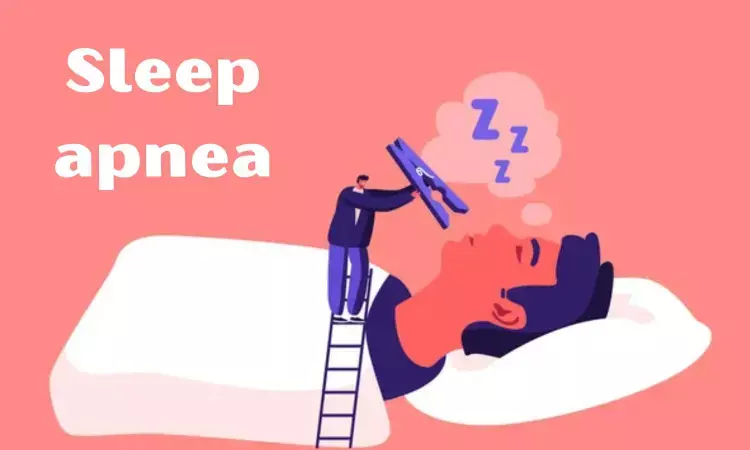- Home
- Medical news & Guidelines
- Anesthesiology
- Cardiology and CTVS
- Critical Care
- Dentistry
- Dermatology
- Diabetes and Endocrinology
- ENT
- Gastroenterology
- Medicine
- Nephrology
- Neurology
- Obstretics-Gynaecology
- Oncology
- Ophthalmology
- Orthopaedics
- Pediatrics-Neonatology
- Psychiatry
- Pulmonology
- Radiology
- Surgery
- Urology
- Laboratory Medicine
- Diet
- Nursing
- Paramedical
- Physiotherapy
- Health news
- Fact Check
- Bone Health Fact Check
- Brain Health Fact Check
- Cancer Related Fact Check
- Child Care Fact Check
- Dental and oral health fact check
- Diabetes and metabolic health fact check
- Diet and Nutrition Fact Check
- Eye and ENT Care Fact Check
- Fitness fact check
- Gut health fact check
- Heart health fact check
- Kidney health fact check
- Medical education fact check
- Men's health fact check
- Respiratory fact check
- Skin and hair care fact check
- Vaccine and Immunization fact check
- Women's health fact check
- AYUSH
- State News
- Andaman and Nicobar Islands
- Andhra Pradesh
- Arunachal Pradesh
- Assam
- Bihar
- Chandigarh
- Chattisgarh
- Dadra and Nagar Haveli
- Daman and Diu
- Delhi
- Goa
- Gujarat
- Haryana
- Himachal Pradesh
- Jammu & Kashmir
- Jharkhand
- Karnataka
- Kerala
- Ladakh
- Lakshadweep
- Madhya Pradesh
- Maharashtra
- Manipur
- Meghalaya
- Mizoram
- Nagaland
- Odisha
- Puducherry
- Punjab
- Rajasthan
- Sikkim
- Tamil Nadu
- Telangana
- Tripura
- Uttar Pradesh
- Uttrakhand
- West Bengal
- Medical Education
- Industry
High Leptin levels exacerbate Obstructive Sleep Apnea Syndrome symptoms

In a recent study found the intricate interplay between hormones and sleep disorders, researchers identified a strong correlation between leptin levels and the severity of Obstructive Sleep Apnea Syndrome (OSAS) symptoms. The findings of the study were published in Cureus Journal.
OSAS, a condition characterized by disrupted breathing during sleep due to upper airway blockages, has long been linked to obesity. However, the role of leptin, a hormone associated with fat regulation, in exacerbating OSAS symptoms remained uncharted territory until now.
The study, led by a team of sleep medicine experts aimed to investigate whether leptin levels could serve as a predictive marker for OSAS. Conducted as a case-control observational research, the study enrolled 80 participants, including 40 cases with OSAS and 40 controls without the disorder. All participants reported obesity with a Body Mass Index (BMI) ranging from 30 to 35 kg/m², coupled with symptoms such as snoring, daytime drowsiness, fatigue, or insomnia.
Leptin levels and fasting blood sugar were measured in all participants, and the severity of OSAS was evaluated using various indicators including STOP BANG scores, apnea-hypopnea index, uvula grade score, and Epworth Sleepiness Scale scores.
Results from the study painted a clear picture: individuals with OSAS showcased significantly higher mean leptin and fasting blood sugar levels compared to the control group. Even more strikingly, leptin levels showed a robust correlation with the severity indices of OSAS. This suggests that higher leptin levels might be indicative of more pronounced OSAS symptoms, indicating a potential role for leptin as a predictor for the syndrome.
These findings have promising implications for future treatments. Dr. Rajendra Behera added, "Restoring altered leptin levels through pharmacological interventions could potentially emerge as a valuable adjunct to existing treatment strategies for OSAS. However, further comprehensive studies are warranted to validate this approach."
Source:
Patial, K., Mishra, H. P., Pal, G., Suvvari, T. K., Mahapatra, C., Amanullah, N. A., Singh, I., Gaur, S., & Behera, R. K. (2023). Assessment of Leptin Levels and Their Correlation With the Severity of Obstructive Sleep Apnea Syndrome: A Case-Control Study. In Cureus. Springer Science and Business Media LLC. https://doi.org/10.7759/cureus.42028
Neuroscience Masters graduate
Jacinthlyn Sylvia, a Neuroscience Master's graduate from Chennai has worked extensively in deciphering the neurobiology of cognition and motor control in aging. She also has spread-out exposure to Neurosurgery from her Bachelor’s. She is currently involved in active Neuro-Oncology research. She is an upcoming neuroscientist with a fiery passion for writing. Her news cover at Medical Dialogues feature recent discoveries and updates from the healthcare and biomedical research fields. She can be reached at editorial@medicaldialogues.in
Dr Kamal Kant Kohli-MBBS, DTCD- a chest specialist with more than 30 years of practice and a flair for writing clinical articles, Dr Kamal Kant Kohli joined Medical Dialogues as a Chief Editor of Medical News. Besides writing articles, as an editor, he proofreads and verifies all the medical content published on Medical Dialogues including those coming from journals, studies,medical conferences,guidelines etc. Email: drkohli@medicaldialogues.in. Contact no. 011-43720751


